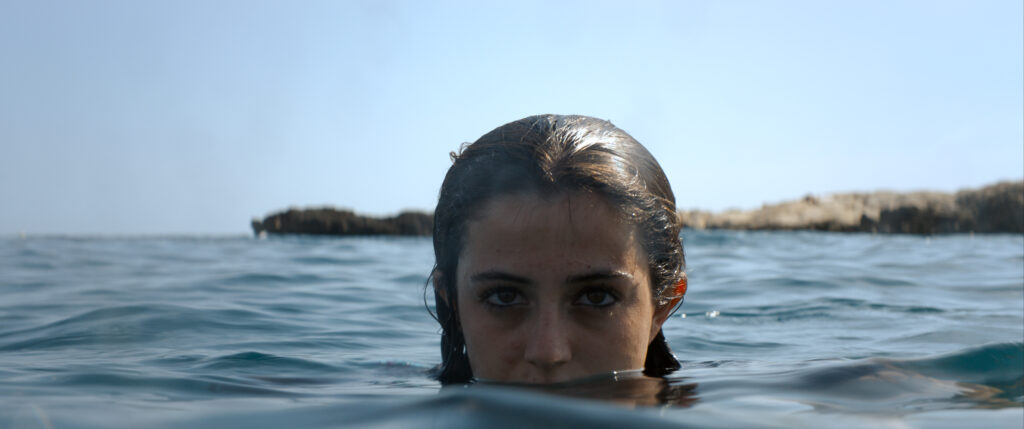Gems of Latin and Spanish Cinema Arriving at New York’s Cinema Village
Five pictures are featured in ‘Latin & Spanish Film Roadshow.’ Presented by Outsider Pictures, the movies hold true to its mission statement of ‘bringing moviegoers the most original stories from around the world.’

‘Latin & Spanish Film Roadshow’
Cinema Village
Beginning July 19
Described in literal terms, Argentinian filmmaker Matías Bize’s “The Punishment” sounds like a drag. A one-take movie that occurs in real time? We’re either talking filmed theater or an experiment in cinematic fortitude. The limited nature of Mr. Bize’s movie becomes apparent within 10 minutes or so, and the skeptical amongst us might be tempted to jump ship — except it’s the 11th minute that makes a difference.
Gimmickry is subsumed by a sustained emotional depth charge. “The Punishment” is for real.
We’re abruptly thrown into the situation at hand. Ana (Antonia Zegers) is driving along a two-lane thoroughfare deep in the forest. In the passenger seat is her husband Mateo (Néstor Cantillana). The atmosphere is tense, tight-lipped, and awkward. Mateo begs Ana to turn back: The couple have left their 7-year old son Lukas (Santiago Urbina) back along the road. Only momentarily, mind you: Lukas is being punished for bad behavior. This threatened abandonment will right the error of Lukas’s ways — or so goes Ana’s logic. Mateo isn’t keen on his wife’s ideas about parenting.
The couple returns to the spot at which they left Lukas and discover his baseball cap, but not the boy. Searching the woods and calling his name proves fruitless. Panic sets in — along with recriminations and see-sawing emotions. Mateo calls the police and the couple is met by the phlegmatic Sergeant Salas (Catalina Saavedra), whose by-the-book demeanor doesn’t endear her to the worried parents — but are the parents worried? The good sergeant keeps mum as to her observations, but not Ana, who has a thing or two to tell Mateo about love, marriage, and parenthood. And so the tension builds….

“The Punishment” is one of five pictures featured in “Latin & Spanish Film Roadshow” at Cinema Village. Presented by Outsider Pictures, the movies hold true to the company’s mission statement of “bringing moviegoers the most original stories from around the world.” Theirs is a small venture — only a handful of films are released and acquired during a given year — but its standards are stringent. The movies that will run on East 12th Street vary in tone and quality, but their integrity is unassailable.
“Creatura” is the most ambitious selection on view as well as the most querulous. The Spanish director, Elena Martin Germano, also plays Mila, a 30-ish woman who is as romantically hindered with her boyfriend as she is emotionally forthright with her parents. Family is rendered a burden in Ms. Germano’s screenplay. Through a series of flashbacks, we learn of Mira’s burgeoning sexuality, as well as a pernicious rash that appears whenever she becomes aroused. Sea water is the only balm. Little else seems to bring her peace.
Mira was promiscuous as a girl — or maybe not. Ms. Germano’s inconsistency in distinguishing between real and imagined events is frustrating, as is her flitting across three distinct periods of Mira’s life: early childhood, adolescence, and adulthood. When concentrating on the past, Ms. Germano is on more solid, if often discomfiting, ground. Credit Mila Borràs and Clàudia Malagelada as, respectively, the 5- and 15-year-old Mila for their nuanced, daring, and empathetic performances.
Would that editor Ariadna Ribnis had shaped the narrative with a firmer hand: Within the restless and often confusing parameters of “Creatura” is a brilliant (and shorter) film waiting to emerge.

The best film in the bunch, the most rooted and sure, comes from Ms. Germano’s fellow Spaniard, Alauda Ruiz de Azúa. “Lullaby” arrives on these shores with a commendation from no less an authority than Pedro Almodóvar: As reported in Variety, he says Ms. Azúa’s film is “undoubtedly the best debut in Spanish cinema for years.”
Although “Lullaby” touches upon motifs we recognize from Mr. Almodóvar’s pictures — in its fraught depiction of family and, especially, the responsibilities and capabilities of women — Ms. Azúa is less given to showiness and caprice. Naturalism is her forte and she sets it out with unsentimental aplomb.
Amaia (Laia Costa) has given birth at age 35 to a cute, colicky, and trying daughter. Her husband, Javi (Mikel Bustamante), has a “not normal” job: He’s a theatrical lighting designer. Amaia’s employment is also arts-related; she’s on parental leave, but regularly fields phone calls. These first-time parents are, would you believe it, flabbergasted by their new charge. Amaia’s father and mother, the convivial if bootless Koldo (Ramón Barea) and the acerbic Begoña (Susi Sanchez), are roped in to help. Which they do, kind of.
The young couple undergoes financial and emotional obstacles; the older couple is confronted by challenges to which they have become unsuited. That, and their bond is tested by past acquaintances and the infirmities of age.
Although the story is centered on Amaia, Begoña takes on increased importance and Ms. Sanchez meets the challenge, bringing shade to a prickly role that sometimes threatens to become one-note. All of the actors are excellent and Ms. Azúa endows their travails with an intimacy that is both unsparing and tender. “Lullaby” is a first-timer’s master stroke and deserving of wider recognition.

